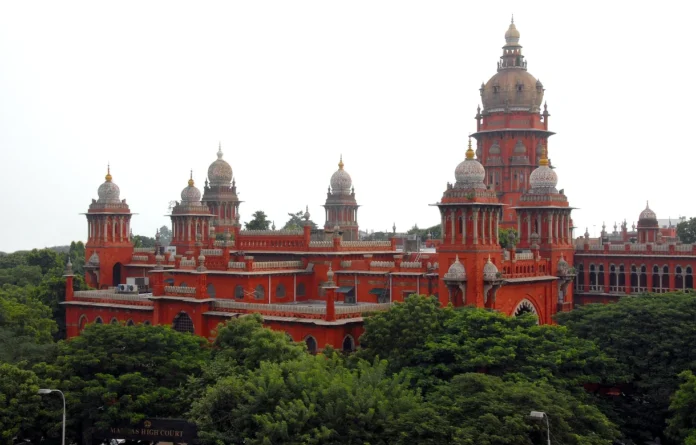The Madras High Court has ruled that the Scheduled Caste devotees were entitled to enter and participate in temple rituals or festivals.
The order was passed by the single-judge Bench of Justice N Anand Venkatesh on July 17 on a petition filed by one Venkatesan, a Dalit from Elayaperumal Nallur Village in Ariyalur district.
Venkatesan moved the High Court after he, along with other members of his community, were barred from participating in the temple car festival of Arulmigu Puthukudi Ayyanar Temple, scheduled from July 16 to 31.
The petitioner sought a writ of mandamus against the district and police authorities, asking them to uphold his community’s right to worship and participate in the festival.
Respondents in the case included district administration officials, police officers, and one private individual allegedly involved in the exclusionary act.
The Counsel appearing for the government apprised the single-judge Bench that the temple was not under the control of the Hindu Religious and Charitable Endowments (HR&CE) Department.
The High Court said this did not affect the right of Scheduled Caste devotees to enter and worship, especially if the temple was open to the general public.
In a strong-worded judgment, Justice Venkatesh cited Section 3 of the Tamil Nadu Temple Entry Authorisation Act, 1947, stating that every Hindu, regardless of caste, was entitled to enter and worship in any Hindu temple.
He observed that while caste and community were creations of human beings, God was always considered to be neutral.
Terming caste-based discrimination in temples as an ‘actionable wrong,’ act, the High Court said that if the general public was permitted to visit a temple, the latter assumed the character of a public temple. In such an event, irrespective of the caste or community of the devotees, they must be permitted to offer their prayers to God.
Denying temple access to a Scheduled Caste community was not only unconstitutional, but a moral affront to their dignity. It underscored the historic struggle behind the 1947 law, aimed at removing discriminatory barriers and ensuring equality in religious practice, noted the single-judge Bench.
It said the 1947 Act came into force after a long struggle by many leaders, who wanted to ensure that no one was prevented from entering the temples based on his/her caste. The Act was brought into force as a policy taken by the state government to remove the disabilities imposed on certain classes of Hindus against entry into Hindu temples in the State, he added.
The High Court ordered the Revenue Divisional Officer and police officials to ensure temple access to all Hindus, irrespective of caste.
Justice Venkatesh warned that any individual preventing Scheduled Castes from participating in the festival would face legal consequences.


